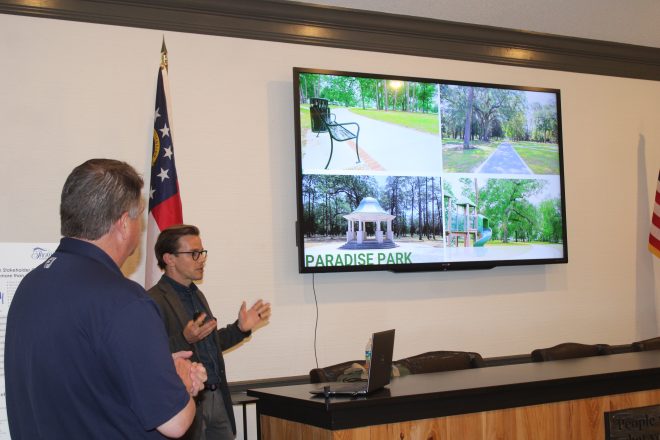Shelter kennels under temporary quarantine
Published 4:56 pm Monday, May 5, 2014
A temporary quarantine of Thomasville-Thomas County Humane Society animal shelter dog kennels was put in place immediately after a puppy tested positive Friday for the canine parvovirus.
The dog had been vaccinated upon intake and thereafter according to schedule and policy.
Subsequent consultation with the Georgia Department of Agriculture resulted in no dogs being allowed to enter or leave the facility for two weeks.
Cats are unaffected by the virus. Cat adoptions will continue.
The Humane Society animal control division will continue issuing warnings, and possibly citations, for dogs running at large in all areas except those designated by local zoning ordinances as agricultural, said Ed Williams, Humane Society executive director.
Dogs involved in bite cases and requiring quarantine will be picked up and held in a part of the animal shelter that has shown no signs of contamination. The animals will be held for 10 days as required by Georgia law.
Williams said the canine parvovirus is highly contagious and is spread from dog to dog mainly through exposure to contaminated feces.
“It is also spread through contact with contaminated objects, such as hands, clothing, bedding, or another dog’s coat. Research shows that puppies under six months of age are most susceptible, However, adult dogs can also be affected,” Williams explained.
The most common symptoms include vomiting, mild to severe diarrhea (often bloody), loss of appetite, weakness, depression and dehydration. Young puppies who acquire parvovirus often will die without aggressive medical treatment.
“Your best course of action is to allow your veterinarian to administer an annual vaccination protocol, beginning at six weeks of age for puppies, that will include protection against the parvovirus, but vaccinations are also available through some local farm supply stores,” Williams said.
If an animal has not been vaccinated before arriving at the animal shelter, it can take up to two weeks before significant immunity to such viruses is achieved.
Inevitably, Williams explained, parvovirus and other infectious diseases will be introduced into an open-admission shelter by community animals.
Puppies are at greatest risk, and their prognosis is worsened by concurrent infections with roundworms, other intestinal parasites, protozoa, viruses and bacteria.
The animal shelter is housing 150 dogs, including 70 puppies under 12 months of age and 49 under six months of age). To date, none have exhibited parvo symptoms.
“Every precaution is being taken to ensure their safety and prevent the further spread of this virus. We have divided the facility into several distinct and segregated zones, and different members of the staff have been designated to work in each zone to prevent crosscontamination,” the executive director explained.
“Every effort will be made to assess the health of each animal on a daily basis. Additional testing will be done as warranted. Cleaning protocols and strict biosecurity measures have been put in place,” he added.
Through the duration of the quarantine, all dogs will be given additional one-on-one time each day with a handler who will provide exercise and enrichment.
Said Williams, “We respectfully ask for the public’s patience as we deal with this problem. If you pick up a stray dog, please consider caring for it for a couple of weeks. If that is not possible, ask your friends and family if they would be willing to do so. Other nearby shelters and rescue groups may also be able to assist you.”
For more information about these and other options, call 228-0613.





